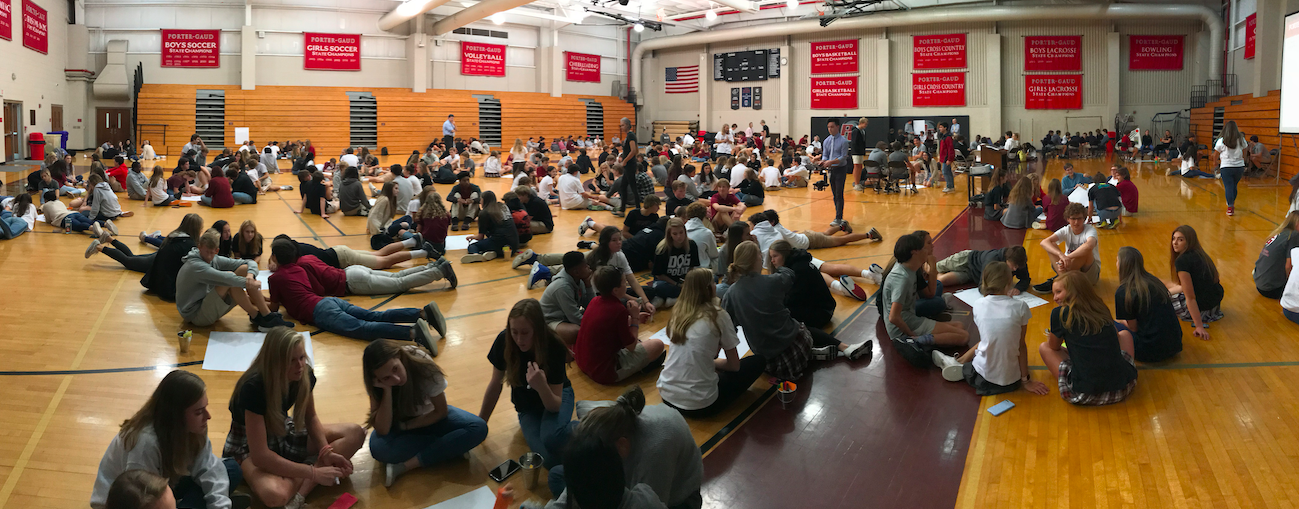What really drives your big, long-term school-wide decisions?
In a video call yesterday with Corwin Press president Mike Soules and a group of Corwin authors, I noted that at virtually every school I have visited in depth for the last couple of years, student well-being has been at or very near the top of stakeholder goals and concerns. We KNOW that our students, particularly teenagers, are NOT physically and mentally well; every indication is that, as a group, they are increasingly more stressed and less healthy, and the problem is getting worse, not better.
Peter Gamwell, another author on the call asked, simply, “What comes first, school or well-being?”
 For many decades the primary role of school has been to put information into students’ heads. Nearly everything about our schools is created and sustained with the goal of maximizing the rate and efficiency with which students learn information, even if retention of that information is very short: The organization of students, subjects, and physical spaces; the daily schedule and annual calendar; assessment systems; professional development; assignment of adults. The entire system is aligned towards maximizing efficiency of the group, as if students and teachers were a colony of ants, not towards the well-being of any individual.
For many decades the primary role of school has been to put information into students’ heads. Nearly everything about our schools is created and sustained with the goal of maximizing the rate and efficiency with which students learn information, even if retention of that information is very short: The organization of students, subjects, and physical spaces; the daily schedule and annual calendar; assessment systems; professional development; assignment of adults. The entire system is aligned towards maximizing efficiency of the group, as if students and teachers were a colony of ants, not towards the well-being of any individual.
This is just wrong.
If your school community REALLY believes that students lie at the center of our mission, and that student well-being ACTUALLY matters, then you will be willing to take on some very exciting, if uncomfortable conversations and decisions. You will make some truly fundamental changes in your approach to the school day, the learning experience, and the outcomes you are trying to achieve. You will make some sacrifices along the way: some traditions will have to go; some teachers will have to grow and learn; perhaps even your reputation as a “college prep” school will suffer temporarily until you help your community redefine what that over-used handle actually means.
I utterly reject the notion that schools must choose between “academic rigor” and student well-being. This is a cop-out that rises to the level of moral failure on the part of those unwilling to re-imagine the role of school. No, we don’t have the full recipe for how to re-tool schools with student well-being at the actual center, and schools by no means have complete control over the full range of environmental pressures that our students face. But we do play a key role in their lives, and we either have to accept the challenge and try, or look into the mirror as the physical and mental health of our students continues to decline.
















Leave A Comment